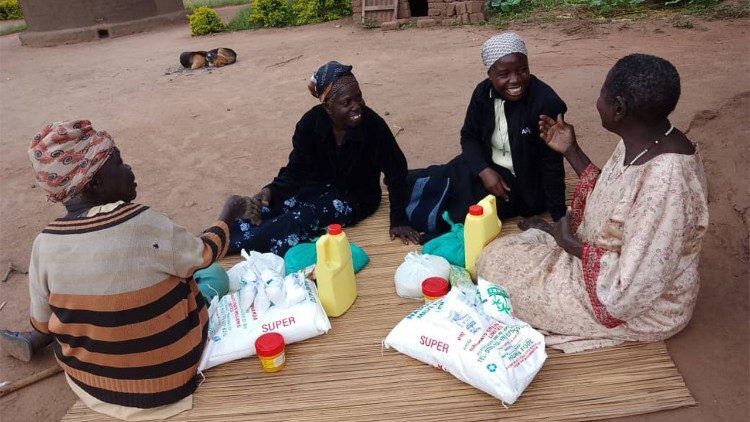Catholic Sister Brings Healing and Hope to South Sudanese Refugees in Uganda
Adjumani, Uganda – May 14, 2025 — In the heart of Uganda’s refugee settlements, where trauma runs deep and support is stretched thin, a Catholic nun is offering something rare: holistic, compassionate care that tends to the body, mind, and soul.
Sister Linah Siabana, a mental health specialist with the Missionary Sisters of Our Lady of Africa, has spent the last five years serving South Sudanese refugees in Uganda’s Arua Diocese. Her mission: to be, in her words, “a healing and consoling presence.”Operating in some of the most neglected corners of Uganda’s refugee settlements, Sr. Linah provides trauma care, education, emergency aid, and spiritual support—often under the shade of mango trees, in makeshift tents, or through one-on-one visits to homes made of tarpaulin and mud.
Overwhelmed Systems, Forgotten People
Uganda currently hosts nearly 1.7 million refugees, mostly from South Sudan and the Democratic Republic of Congo, earning global praise for its open-door refugee policy.
But that generosity has been severely tested in recent years. Chronic underfunding, population pressures, and shifting donor priorities have left both refugees and aid providers overwhelmed.“The settlements here are filled with women, children, and elderly people who have lost everything,” Sr. Linah says. “Families are falling through the cracks.”In Adjumani District, which alone shelters over 54,000 refugees, many are left to navigate trauma and deprivation with little to no structured support.
Listening Before Leading
After arriving in 2019, Sr. Linah spent her first years simply listening—learning local languages and building trust with communities. In 2022, she led a year-long needs assessment in Maaji and Agojo settlements, uncovering widespread mental health challenges, disrupted education, and tensions between refugees and host communities.In response, she spearheaded several initiatives: securing scholarships for vulnerable children, launching vocational training for youth, and organizing group therapy and dialogue sessions.“Spiritual care rebuilds resilience,” Sr. Linah explains. “It helps refugees process loss, find purpose, and reconnect with hope.”

Sr. Linah Siabana, MSOLA (second from the right), visits the sick and elderly to provide essential food supplementsHealing Trauma, One Soul at a Time
Her work goes beyond logistics. In a dimly lit tent, Sr. Linah kneels beside a refugee woman haunted by nightmares. “It’s not just the war they’re fleeing,” she says. “It’s the daily stress of survival here.”As the mental health lead for her congregation’s refugee outreach, Sr. Linah regularly addresses emotional wounds caused by abandonment, hunger, and hopelessness. A recent UNHCR policy change, which removed some refugees from food assistance lists, has only deepened despair.“When we provide basics like food, suicide rates drop. It’s that simple,” she says.With the help of the Refugee Welfare Council, she conducts home visits to identify the most vulnerable—child-headed households, elders, and people with disabilities. One elderly woman told her, “You remind me I’m still human.”
Peacebuilding and Mentorship in Crisis
Tensions between ethnic groups and with host communities remain a challenge. “We’re not just aid workers; we’re mediators,” says Sr. Linah. Her team promotes peace through dialogue, but the demand often exceeds their limited resources.Beyond the camps, she mentors young Catholic sisters in Adjumani Vicariate, providing training in trauma-informed care and spiritual formation.“Young religious sisters crave guidance, but trained counselors are scarce,” she notes. Despite travel difficulties and limited infrastructure, she remains steadfast in her mission. “Every encounter is holy ground, a chance to reflect Christ’s love.”
A Mission Renewed
For Sr. Linah, the work is deeply personal and spiritual. “We walk with refugees and see Jesus in their suffering,” she says. “The challenges, the hunger, the tears—they rekindle our purpose: to heal, console, and rekindle hope.”As global attention shifts elsewhere, her message remains urgent: “These are not numbers. They are mothers, children, elders—people worthy of dignity. We cannot look away.”